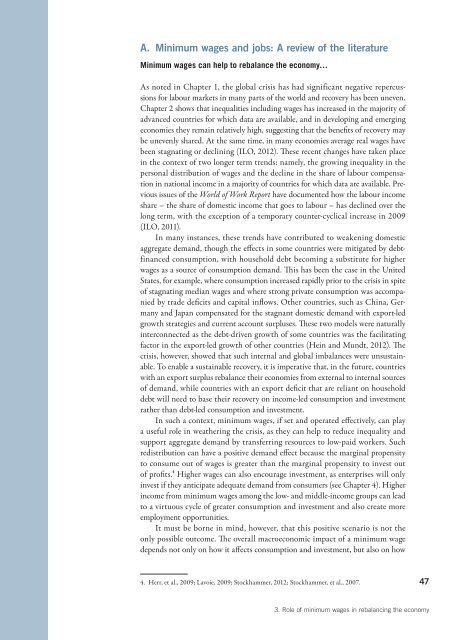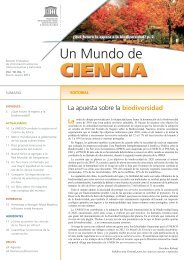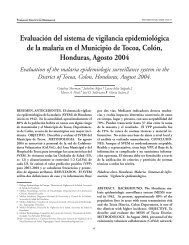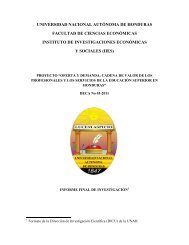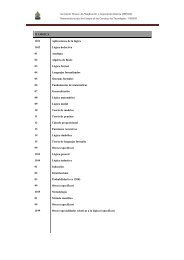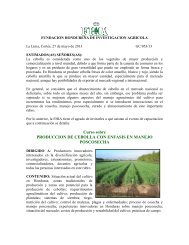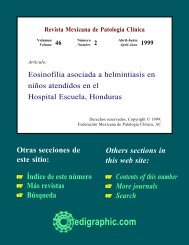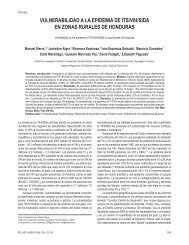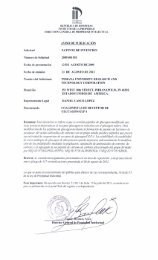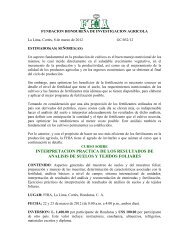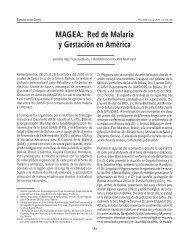World of Work Report 2013 - International Labour Organization
World of Work Report 2013 - International Labour Organization
World of Work Report 2013 - International Labour Organization
Create successful ePaper yourself
Turn your PDF publications into a flip-book with our unique Google optimized e-Paper software.
A. Minimum wages and jobs: Areview <strong>of</strong> the literature<br />
Minimum wages can help to rebalance the economy…<br />
As noted in Chapter 1, the global crisis has had significant negative repercussions<br />
for labour markets in many parts <strong>of</strong> the world and recovery has been uneven.<br />
Chapter 2 shows that inequalities including wages has increased in the majority <strong>of</strong><br />
advanced countries for which data are available, and in developing and emerging<br />
economies they remain relatively high, suggesting that the benefits <strong>of</strong> recovery may<br />
be unevenly shared. At the same time, in many economies average real wages have<br />
been stagnating or declining (ILO, 2012). These recent changes have taken place<br />
in the context <strong>of</strong> two longer term trends: namely, the growing inequality in the<br />
personal distribution <strong>of</strong> wages and the decline in the share <strong>of</strong> labour compensation<br />
in national income in a majority <strong>of</strong> countries for which data are available. Previous<br />
issues <strong>of</strong> the <strong>World</strong> <strong>of</strong> <strong>Work</strong> <strong>Report</strong> have documented how the labour income<br />
share – the share <strong>of</strong> domestic income that goes to labour – has declined over the<br />
long term, with the exception <strong>of</strong> a temporary counter-cyclical increase in 2009<br />
(ILO, 2011).<br />
In many instances, these trends have contributed to weakening domestic<br />
aggregate demand, though the effects in some countries were mitigated by debtfinanced<br />
consumption, with household debt becoming a substitute for higher<br />
wages as a source <strong>of</strong> consumption demand. This has been the case in the United<br />
States, for example, where consumption increased rapidly prior to the crisis in spite<br />
<strong>of</strong> stagnating median wages and where strong private consumption was accompanied<br />
by trade defi cits and capital inflows. Other countries, such as China, Germany<br />
and Japan compensated for the stagnant domestic demand with export-led<br />
growth strategies and current account surpluses. These two models were naturally<br />
interconnected as the debt-driven growth <strong>of</strong> some countries was the facilitating<br />
factor in the export-led growth <strong>of</strong> other countries (Hein and Mundt, 2012). The<br />
crisis, however, showed that such internal and global imbalances were unsustainable.<br />
To enable a sustainable recovery, it is imperative that, in the future, countries<br />
with an export surplus rebalance their economies from external to internal sources<br />
<strong>of</strong> demand, while countries with an export deficit that are reliant on household<br />
debt will need to base their recovery on income-led consumption and investment<br />
rather than debt-led consumption and investment.<br />
In such a context, minimum wages, if set and operated effectively, can play<br />
a useful role in weathering the crisis, as they can help to reduce inequality and<br />
support aggregate demand by transferring resources to low-paid workers. Such<br />
redistribution can have a positive demand effect because the marginal propensity<br />
to consume out <strong>of</strong> wages is greater than the marginal propensity to invest out<br />
<strong>of</strong> pr<strong>of</strong>its.4 Higher wages can also encourage investment, as enterprises will only<br />
invest if they anticipate adequate demand from consumers (see Chapter 4). Higher<br />
income from minimum wages among the low- and middle-income groups can lead<br />
to a virtuous cycle <strong>of</strong> greater consumption and investment and also create more<br />
employment opportunities.<br />
It must be borne in mind, however, that this positive scenario is not the<br />
only possible outcome. The overall macroeconomic impact <strong>of</strong> a minimum wage<br />
depends not only on how it affects consumption and investment, but also on how<br />
4. Herr, et al., 2009; Lavoie, 2009; Stockhammer, 2012; Stockhammer, et al., 2007.<br />
47<br />
3. Role <strong>of</strong> minimum wages in rebalancing the economy


